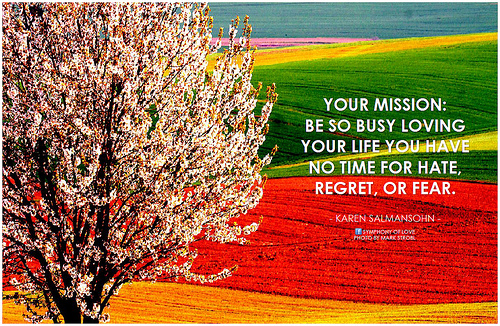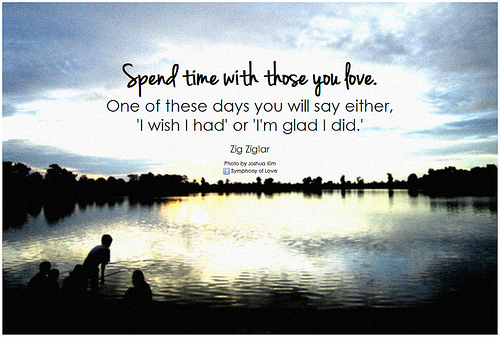Life is short, and sometimes you come to a crossroads where you have to choose what really matters moving forward and what really doesn’t. I am at just such a crossroads now in my life and when that happens I usually wander back through my journals, blogs, etc… to see if I can get any clarity about the arc of my life. In doing so, I found this post from my previous blog and it struck a cord in me about what actually matters in life, and when it comes to the most important questions, what I might truly value. This post was written in 2011 and I’ve left it in it’s original form. I hope it inspires you to think, just a little, about what really matters to you today.
I wish I could say that the inspiration for this post is a happy one, but it’s anything but. I found out today that three colleagues, two of whom were dear friends from graduate school, have passed away recently. Eli was a completely hilarious, quick witted, sarcastic man who kept everyone around him laughing and would go out of his way to make people happy. Susan was a beautiful, vibrant woman who was somewhat quiet and always smiley but when she did speak up it was always with something unexpectedly funny that would take everyone by surprise. She was one of the kindest, warmest people I’ve met. Stacey was in school after I was, but we worked together and I was impressed by her positivity and drive.
These three were all young (30s and 40s), vibrant, and did everything for their health. They had great relationships, children, careers and busy lives. I don’t think any of them would have anticipated leaving the world so early. I can’t begin to fathom that they are gone.
As I sit in my house, surrounded by my stuff and reminders of the things that normally weigh heavily on my mind I am struck by the sheer madness of my entire existence. That I am here and whole and healthy is such a miracle – such a gift. I feel so ashamed at the amount of time I waste worrying about things that don’t matter. When I look around today, after learning of these three deaths, my worries are so trivial and tiny and neurotic. I have everything I need, I have wonderful friends, amazing family, a house I love and good food on the table. What does the rest of it matter? Where is there any kind of problem?
I’m also ashamed of the time I waste doing things that don’t truly make a difference in the end. Sure it’s a good idea to make sure my business keeps running and my house is in good repair. But what about the time I fritter away on the internet or with some kind of escapism like TV or movies or books? Doesn’t that just amount to watching other people live instead of living myself? Am I willing to spend some of these precious moments that way when I know that life is short? There is nothing like the stark reality of death to make a whole bunch of silliness just fall away.
This also throws light on the social and emotional stuff that can become issues in my head but are utterly meaningless. Remember, life is short. How many times have I not called a dear friend because I was too busy or had to get one more thing done at work? How many people have I failed to keep in touch with, or not shown my feelings for – for some ridiculous reason like laziness or shyness or inconvenience. How many activities and events have I missed because there was something that really needed doing, or work, or I was so tired from work that I couldn’t muster up the energy, or some other equally small excuse.
At moments like this it is so hard not to look at my life and feel like maybe I’ve missed something somewhere. If Susan or Eli or Stacey had just a few more days – would they spend them working? Taking care of responsibilities? Or would they smile with their loved ones, maybe go to a park, pick flowers for their bedside table, eat chocolate or watch the sunset. Or maybe something totally different and fun and wonderful – who knows? The point is – they’d probably make joy and love and laughter a pretty high priority. And shouldn’t we all? I’m not saying we should ignore real life and let everything go – but what if work and money and stuff mattered just a little less and life and people and friends and joy mattered just a little bit more? Your life is short too – what do you choose to do with it today?

 Both of these gorgeous images are from http://www.symphonyoflove.net/ – Thanks!
Both of these gorgeous images are from http://www.symphonyoflove.net/ – Thanks!














